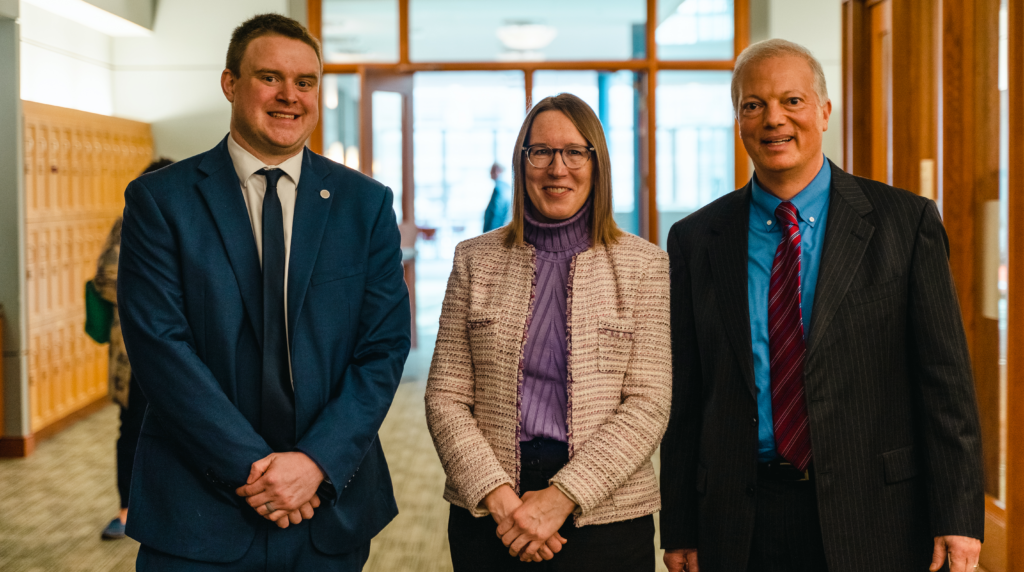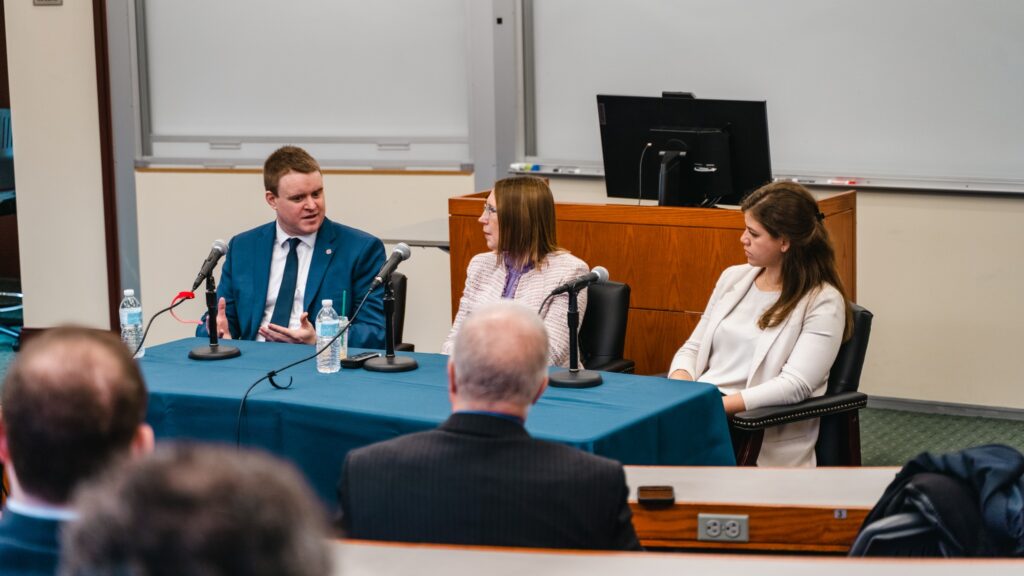Hester Peirce, Commissioner of the United States Securities and Exchange Commission (SEC), has gained increasing prominence thanks to opinions on financial regulation that sometimes go against the status quo.
Oftentimes financial regulatory bodies are in favor of legacy banking practices, but Peirce has emerged as a public figure keen to challenge these norms when needed to protect the resilience of financial systems and cultivate a competitive environment.
In one of her most recent talks – a fireside chat at Georgetown University on January 26th – Peirce discussed the past, present, and future of digital asset regulation at length.
Digital assets can be thought of as a container for anything that’s been created or traded on the blockchain. While these technologies have long moved passed the stage of being “emergent”, much of the awareness and understanding remains at the fringes of society or in the hands of the experts building and using the technology.
To counter this, Peirce offered detailed context during the talk that was essential to ensure a better understanding of the digital assets marketplace and the strengths and weaknesses of such a system.
Peirce has also spoken previously about the need for so-called Token Safe Harbors. The idea here is to give crypto and blockchain startups the breathing space to develop and build networks to a more robust stage before having to adhere to federal finance regulations and security protocols.
Asked Edward Cullen, CEO of Crescite and one of the interviewers at the event, “I think from one of the innovations on the token Safe Harbor proposal, do you see any room potentially for 3.0 or do you see any sort of room for that now that the spot’s been approved and saying, okay, maybe there’s some innovation opportunities, and can you talk about that?”
Said Peirce, “So a few years ago I put out two tokens Safe Harbor, and the idea was to answer the the question that a lot of people had, which is a problem that a lot of people had pointed out, which is that there are a lot of people issuing tokens and there was not a lot of disclosure around them.”
“And obviously, if people are buying these things, you want to make sure they know what they’re buying. And so was there a way that we could design a framework that would get the kinds of information that people buying these things would uniquely want? And there there’s some things that would be the same as if you’re buying anything and any security, right?”

Continued the Commissioner, “You want to know who’s behind it and those kinds of things. But there are certain things that are unique to this area. Blockchain, the economics of the blockchain. Are the founders going to hold back a number of of these coins and then dump them on the market later. They’re these kinds of things you want to know. You want to have a sense of what the development plan is for the project. And so I was trying to get at the safe harbor that I put out would require people to make these disclosures for the initial period when they when they were selling these tokens. And then the idea was that if you really decentralize the blockchain such that no one had more information than anyone else, the disclosures wouldn’t be necessary anymore because all that information would be out there and it would be available for anyone to see there.”
According to notes Peirce released on GitHub in relation to her Token Safe Harbor 2.0 proposal, the initiative aims to enhance token purchaser protection, more frequent updates on development disclosures and more clarity about the transition process that would take place at the end of the three-year grace period.
Now, it may be time to consider a Token Safe Harbor 3.0 proposal given that Peirce’s fireside chat was held to mark the launch of the USA-UAE Alliance, a blockchain business forum founded by Georgetown University classmates Edward Cullen and Michael Amatulli.
The Master’s in International Business and Policy program, which both attended, had provided an effective outlet for a conversation on bringing together a USA-UAE Alliance.
Said Edward Cullen, CEO of Crescite Innovation Corporation, “The USA-UAE Alliance™ is the latest example of international collaborators coming together and using blockchain technologies for economic growth and social good. We are appreciative of our education as continue to build.”
Cullen, earlier a candidate for Mayor of New York City, is an entrepreneur who is known for innovation and regulatory leadership. The USA-UAE Alliance™ team includes Karl P. Kilb III, Co-Founder and Chairman of Crescite Innovation Corporation and former General Counsel of Bloomberg LP. Kilb is the Founder and Chairman of the Entrepreneurial Law Advisory Council at the Fordham University School of Law.
Said Michael Amatulli, who helped start the alliance and is CEO of MVNM, “Blockchain is going to become increasingly prominent across financial communities and it’s essential that the development of the technology happens in a fair and sustainable manner.”
Hester M. Peirce was appointed by President Trump to the U.S. Securities and Exchange Commission and was in 2018 sworn in. Prior to joining the SEC, Peirce conducted research on the regulation of financial markets at the Mercatus Center at George Mason University. She was a Senior Counsel on the U.S. Senate Committee on Banking, Housing, and Urban Affairs, where she advised Ranking Member Richard Shelby and other members of the Committee on securities issues.
Featured photo of Crescite CEO Edward Cullen, SEC Commissioner Hester Peirce and Senior TechCrunch reporter Jacquelyn Melinek

